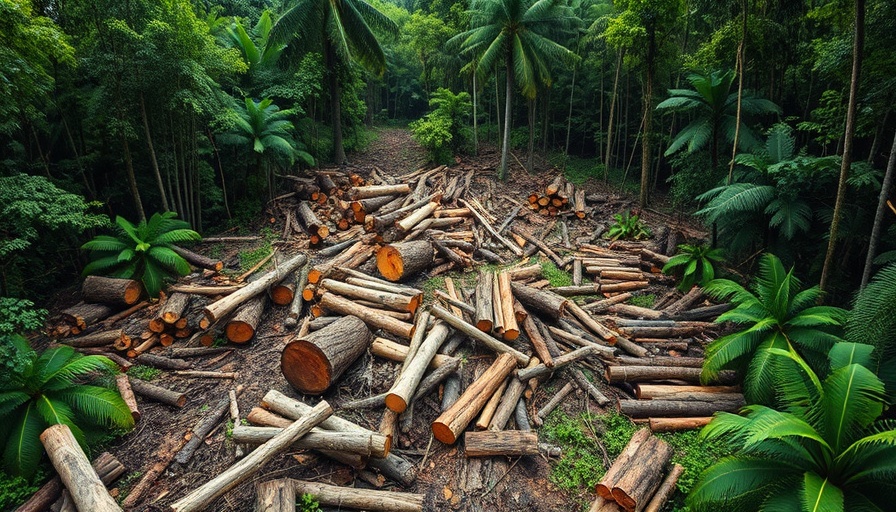
Uncovering the Impact of Illegal Logging
The recent report titled "Tricks, Traders, and Trees" by the Environmental Investigation Agency (EIA) has unveiled a troubling reality: illegal timber from the Brazilian Amazon is making its way into U.S. and European markets. This revelation is not only shocking but also raises significant concerns about environmental sustainability and ethical consumerism. The report outlines that nearly one-third of the timber extracted from the Amazon is believed to be illegal, highlighting serious flaws in regulatory frameworks designed to protect these critical ecosystems.
Why Should This Matter to Consumers?
As consumers become more environmentally conscious, awareness around the origins of products is increasingly vital. The EIA's findings indicate that consumers in the U.S. and EU may unknowingly support industries tied to illegal activities, including corruption and environmental degradation. Rick Jacobsen, a senior policy manager at EIA, states that people do not want to negatively impact rainforest preservation simply by buying wood for their homes. This sentiment underscores the need for transparency in supply chains.
The Mechanisms of Deception
The illegal logging industry has developed sophisticated methods to mask its activities. By inflating tree volumes and manipulating paperwork, traders can present illegally sourced timber as compliant. For instance, some timber was linked to areas where illegal mining operations were also taking place, showcasing that multiple illegal activities often intertwine. This system not only jeopardizes the Amazon's biodiversity but also poses threats to global environmental health.
Current Regulations and Their Shortcomings
Despite existing laws in the U.S. and EU aimed at preventing the import of illegal timber—such as the Lacey Act and the EU Timber Regulation—implementing these regulations has proven ineffective. The forthcoming EU Deforestation Regulation aims to tighten these controls further; however, compliance remains a significant challenge. The report indicates that systemic corruption is present at many levels of Brazil's logging industry, including potential bribes to politicians and enforcement officers.
The Broader Implications for the Environment
Illegal logging is more than just a crime; it contributes to ecosystem destruction, loss of biodiversity, and climate change. The dense tropical hardwoods like ipê, favored for their durability, are becoming increasingly rare as over-exploitation continues. This not only damages local environmental health but also threatens the livelihoods of individuals dependent on these forests for sustenance and cultural identity.
Taking Action Against Illegal Logging
While the situation may seem dire, there are steps consumers and businesses can take to challenge the status quo. By supporting companies that are committed to ethical sourcing and demanding transparency, consumers can play a role in combating illegal logging. Additionally, engaging with advocacy groups pushing for stronger enforcement of existing laws can create pressure for change.
Conclusion
Understanding the challenges posed by illegal logging in the Brazilian Amazon is a necessary step toward making more responsible choices as consumers. As the report emphasizes, the responsibility does not lie solely with manufacturers; as consumers, we have the power to influence market practices by holding companies accountable. The continued survival of our planet's most vital ecosystems may depend on it.
 Add Row
Add Row  Add
Add 




Write A Comment